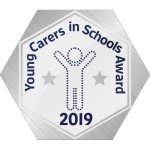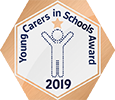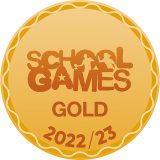“The more that you read, the more things you will know. The more you learn, the more places you’ll go.” – Dr. Seuss, “I Can Read with My Eyes Shut!”
Our Vision
At Kessingland C of E Primary Academy we believe that the purpose of education is to further social justice, to deliver a curriculum that includes powerful knowledge which takes pupils beyond their everyday experience. Our vision is deeply Christian, with the golden thread of Jesus’ promise of ‘life in all its fullness’. We believe that everyone is a child of God and should be supported to flourish and reach their full potential. We are committed to developing the whole child and have high aspirations for everyone to be the best they can be.
Reading
Aspire: We aim to provide experiences which show children the wide range of possibilities available for their future. We want them to be challenged to imagine possibilities beyond their own experience.
Believe: We promote ambition, high aspirations and foster pupils’ capacity to see the possibilities within the world today. Championing a Growth Mindset, pupils believe in the power of ‘yet’.
Challenge: We strive for children to learn skills alongside knowledge, ensuring that all pupils have a secure platform to reach the next step in their learning journey and their full potential – ‘With God, all things are possible’ (Matthew 19:26).
Intent
Reading is a statutory entitlement for our pupils and accessible to all.
Our aim is that all children will develop life-long reading habits and a love of reading and literature. Students will identify as readers and writers, experiencing how, through reading and writing, they can communicate with others, express themselves and cultivate identity, an understanding of the world and their place in it in relation to others.
Through a text-rich curriculum, explicit vocabulary teaching and our Reading Roundabout lessons, we will expose children to new worlds, experiences and ideas, expanding their horizons. Our choice of texts will both value and confirm students’ linguistic, cultural and social backgrounds, and introduce them to cultural and social contexts beyond those they are familiar with. We will make links to other subjects and provide meaningful contexts and purposes for writing.
Throughout the school, children are regularly read to by an adult in their classes. Teachers will either use their class stimulus text or another which fits in with the learning taking place. Teachers regularly read a huge variety of written material with the children: fiction and non-fiction, stories, reports, diaries and poems. All year groups have access to challenging and interesting novels for teachers to read to their classes, exposing children to language and classic stories, which they may find too challenging to read independently. We have an inspiring, well-resourced school library which all pupils are able to access regularly. In addition, we have a strong link with Kessingland Public Library. Some children require more rigour, support and structure when learning to read. These children may have a daily one to one reading session with a teaching assistant or learning support assistant alongside their regular whole-class sessions.
Implementation
To ensure high standards of teaching and learning in Reading, our curriculum is progressive throughout the whole school.
Key Concepts: Sight recognition of familiar words, Decoding, Phonological awareness, Etymology to support decoding new vocabulary and Spoken language
Domains of Knowledge: Background knowledge, Vocabulary, Language Structures, Verbal Reasoning and Literacy Knowledge
EYFS-YR1: The school’s approach to teaching early reading and phonics is systematic and ensures all children learn to read words and simple sentences by the end of the Foundation Stage. Children take part in a daily Read, Write Inc. phonics session and take home a reading book every week. In addition to these discrete lessons, children are given many opportunities throughout each day to practise and use their phonics skills and knowledge. Phonics continues into KS2 where appropriate and links to our whole school spelling scheme.
YR2-6: Our curriculum is planned around a series of carefully chosen, high-quality texts. These texts relate to the year groups wider curriculum and help children to build a comprehensive vocabulary. We explicitly teach the skills needs for children to become competent and confident readers. They are taught higher order reading skills through VIPERS (Vocabulary, Inference, Prediction, Explain, Retrieval and Summarise). PiXL is often used to support the introduction and progression of these skills. Enrichment: The school’s Reading curriculum is enriched through our sustained partnerships with Kessingland Library and local authors. Reading for pleasure is embedded through establishing a culture of reading throughout the school. This is achieved by having a range of text types and genres both in classrooms and the library, which children are also encouraged to take home. Visiting authors, World Book Day events and YR6 reading buddies support this love of reading. Discovery cafes, parent workshops and guidance from class teachers are all methods that are used to ensure that both phonics and reading are developed in partnership with parents.
Impact
The Reading curriculum builds towards six End Points, describing what we want our pupils to achieve in each of the disciplines by the end of Year 6:
End Point 1: Develop an enduring appreciation and enjoyment of literature, with knowledge of a wide range of texts, styles and genres that are drawn on independently in reading.
End Point 2: Fluently and confidently talk about reading through discussion, debate, performance and review of text.
End Point 3: Read and perform a range of age appropriate texts with fluency, expression and accuracy (in order to direct cognitive load to comprehension).
End Point 4: Demonstrate secure comprehension through prediction, appropriate questioning, clarifying, summarising, inferring and through the activation of prior knowledge including a wide and varied vocabulary base.
End Point 5: Become familiar with age-appropriate, high-quality and important texts from a variety of writers.End Point 6: Compare and contrast a range of texts based on structure, theme and character.
Assessment
Children’s progress in phonics is monitored through RWI Phonics Phases. In YR1-6 tests in Reading are taken three times a year which enables the school to assess every child’s attainment and monitor progress throughout the year. For children who need additional support in ready, we use interventions to enable children to catch up. Our aim is that every child’s attainment is in line or exceeds their potential when we consider the varied starting points of all our children.













